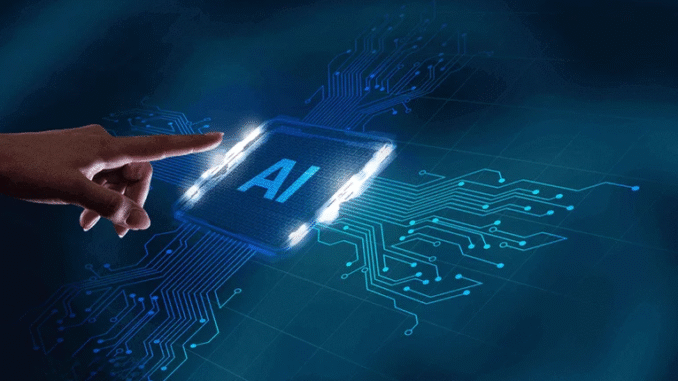
The Future of AI: How Artificial Intelligence Is Reshaping Everyday Life
Artificial Intelligence (AI) is no longer just a concept found in science fiction. It’s a powerful force driving transformation across industries and reshaping how we live, work, and interact with the world around us. From voice assistants to healthcare diagnostics, AI technologies are quietly but profoundly influencing our daily routines. As we look to the future, the potential of AI to impact even more aspects of our lives becomes increasingly clear.
What Is Artificial Intelligence?
At its core, AI refers to the simulation of human intelligence in machines. This includes tasks like learning, reasoning, problem-solving, understanding language, and perceiving the environment. AI is powered by algorithms, machine learning, and big data. While we’ve had computers for decades, AI allows machines to go a step further — to adapt and improve over time without being explicitly programmed for every scenario.
AI in Everyday Life Today
You may not always realize it, but AI is already integrated into many parts of your day:
1. Smartphones and Virtual Assistants
When you say “Hey Siri” or “OK Google,” you’re using AI. Virtual assistants rely on natural language processing (NLP) to understand your commands and respond accordingly. These systems get smarter over time by learning your preferences, habits, and frequently used commands.
2. Recommendation Systems
Whether you’re watching Netflix, shopping on Amazon, or browsing YouTube, recommendation algorithms powered by AI suggest content tailored to your interests. These systems analyze your past behavior and that of millions of other users to predict what you’ll enjoy next.
3. Smart Home Devices
AI powers smart thermostats, lights, and security systems. These devices can learn your daily routines and adjust settings automatically to optimize energy use, security, and comfort.
4. Navigation and Transportation
Apps like Google Maps or Waze use AI to analyze traffic patterns, road conditions, and real-time data to provide the fastest routes. In public transportation and logistics, AI improves scheduling and delivery efficiency.
5. Healthcare Innovations
AI is revolutionizing healthcare through early disease detection, personalized treatment plans, and even robotic surgeries. Algorithms can analyze medical images faster and sometimes more accurately than human doctors.
Emerging Trends in AI
As AI continues to evolve, several trends are emerging that will play a significant role in its future development.
1. Generative AI
Generative AI refers to systems like ChatGPT or image-generating models such as DALL·E, which can create text, images, and even music. These tools are being used in content creation, customer support, and creative industries, enabling individuals and companies to produce high-quality outputs faster and more efficiently.
2. AI in Education
AI-driven platforms offer personalized learning experiences, adapting to each student’s pace and learning style. This can help educators identify struggling students early and provide targeted support, potentially transforming education accessibility and outcomes.
3. Autonomous Vehicles
Self-driving cars are among the most high-profile AI applications. While not yet fully mainstream, companies like Tesla, Waymo, and others are making significant progress. These vehicles use AI to process sensor data, make real-time decisions, and navigate complex environments.
4. AI in Finance
AI helps detect fraud, assess credit risk, and automate trading in the financial industry. Robo-advisors are now offering personalized investment advice at lower costs, making financial services more accessible.
5. Natural Language Processing and Translation
Tools like real-time language translators are becoming increasingly accurate. AI-powered transcription and summarization tools also help professionals save time and improve productivity.
The Ethical and Social Impacts of AI
As AI becomes more embedded in daily life, it raises important ethical and social questions:
1. Privacy Concerns
AI often relies on large datasets that include personal information. This raises concerns about how data is collected, stored, and used. Users want transparency and control over their data.
2. Job Displacement
Automation powered by AI is changing the job market. While it creates new opportunities, it also threatens to displace workers in roles that can be easily automated, such as data entry or basic customer service.
3. Bias in Algorithms
AI systems can unintentionally learn and perpetuate human biases if trained on biased data. This can lead to unfair outcomes in areas like hiring, lending, or law enforcement.
4. Accountability and Regulation
When AI makes decisions — especially in critical fields like healthcare or criminal justice — it’s crucial to establish who is responsible for mistakes. Regulatory frameworks are still catching up with the technology.
What the Future Holds
Looking ahead, AI is expected to be even more deeply integrated into our lives, possibly in ways we can’t fully predict today. Some likely developments include:
1. Hyper-Personalization
AI will make experiences more personalized than ever — from healthcare and education to shopping and entertainment. You could receive a completely customized workout plan or meal prep suggestions based on your health data and preferences.
2. AI-Powered Creativity
As AI-generated art, music, and writing improve, it will be used more in collaborative settings — enhancing rather than replacing human creativity.
3. Human-AI Collaboration
AI won’t just replace certain jobs; it will augment many more. Professionals like doctors, lawyers, and engineers will use AI tools to work more efficiently and accurately, turning AI into a partner rather than a replacement.
4. Stronger AI Governance
Expect to see more robust regulations aimed at ensuring ethical AI development. Governments, businesses, and international bodies are already working on guidelines to ensure AI benefits all of society.
5. Emotional AI
Emotion recognition technology is being developed to understand and respond to human emotions. This could lead to more empathetic machines, better customer service, and even mental health monitoring.
Conclusion
Artificial Intelligence is not a distant dream — it’s already here, reshaping our everyday experiences in subtle but powerful ways. As it continues to evolve, its impact will only grow. The key to harnessing AI’s full potential lies in responsible development, transparency, and inclusive innovation. The future of AI is not just about smarter machines; it’s about creating a smarter, more connected world for everyone.
